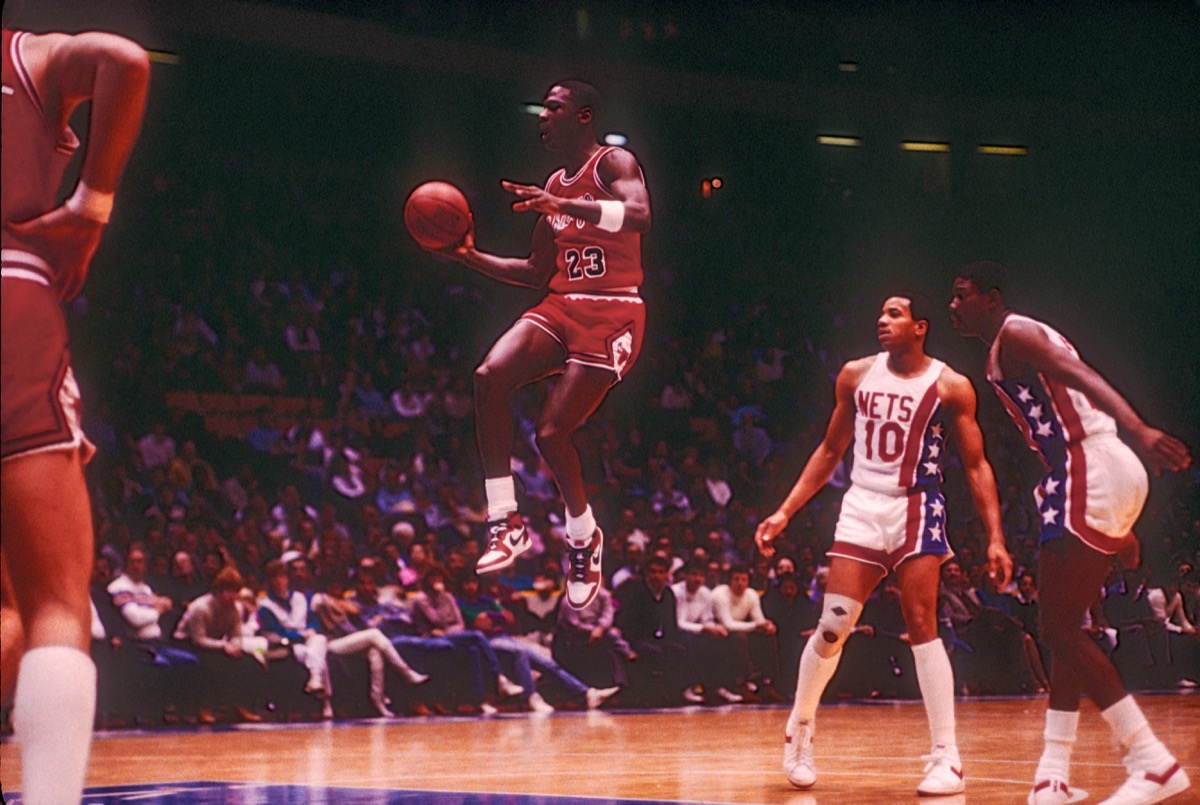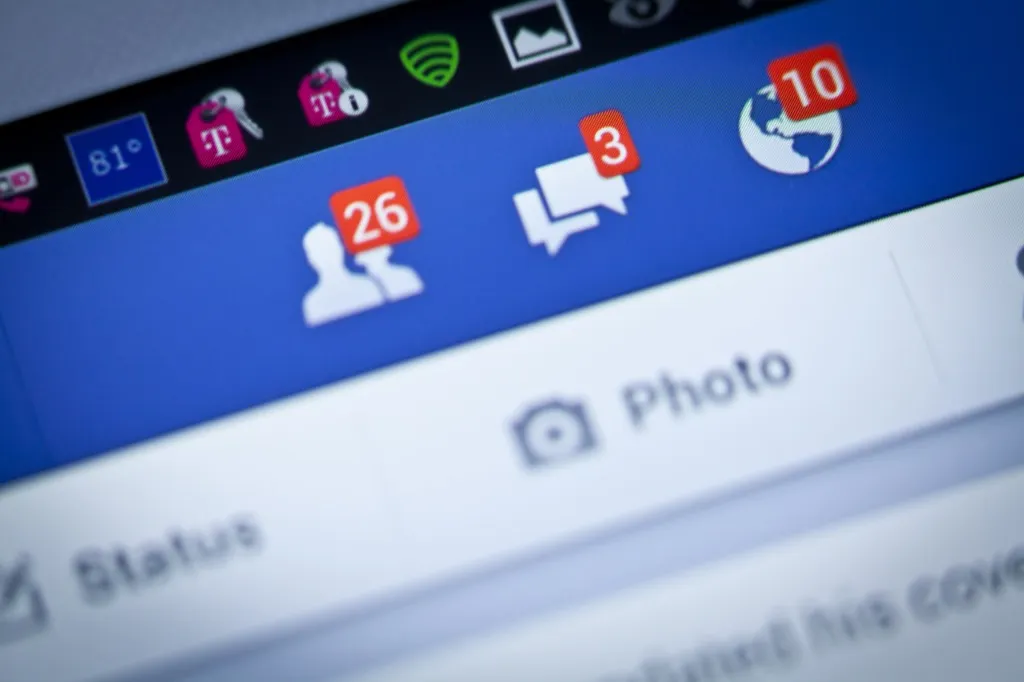25 Common Words That Didn’t Exist Until the 1990s

Ah, the English language: an ever-changing, always evolving linguistic masterpiece. Of course, many of the words we use today were invented centuries ago—but that’s not the case with all of them. For example, the words “play date” and “probiotic” didn’t exist until the 1970s and the words “high five” and “homeschool” didn’t pop up until the 1980s, according to Merriam-Webster.
The 1990s, however, were a different story. In the first year of this decade, the World Wide Web went live and a whole new era of internet slang took off. But while the ’90s gave us a lot of techie terms, it also offered us some surprising lingo that has nothing to do with computers. From “buzzkill” to “man cave,” these are the insanely common words that didn’t exist until the 1990s. And for more phrases we don’t use anymore, check out The Best Slang Terms From the 1990s That Aren’t Cool Today.
1
McMansion

There are modest homes and massive abodes and then there are McMansions, which lie somewhere in between. According to Merriam-Webster, these houses are typically built in suburban neighborhoods or developments and are “regarded critically as oversized and ostentatious.” The first time this word was used was in 1990, although it’s become so common today that there’s an entire blog dedicated to compiling photos of the worst of the worst. And for more throwback words you may remember, check out the 100 Slang Terms From the 20th Century No One Uses Anymore.
2
Face-palm

If you’re the type of person who’s often low on patience, then you’re probably familiar with the face-palm, or the action of covering your face with your hand as an expression of exasperation or dismay. But stunningly, the term “face-palm” only made it into the lexicon in 1996. Before that, we’re guessing you just had to utter the word “ugh,” and leave it at that.
3
Brain freeze

From time to time, you may experience a sharp pain in your head when you drink a cold beverage too fast or eat an ice cream too quickly. And while we now know that this reaction is your body’s way of telling you to slow down and take it easy, it wasn’t until 1991 that we had a word to describe it. Before then, the phenomena of brain freeze went by its technical term: sphenopalatine ganglioneuralgia. And for more ’90s nostalgia, check out The Biggest ’90s TV Teen Idols, Then and Now.
4
Infinity pool

Thanks to the fact that they extend over a body of water beyond their edge, infinity pools create the illusion of water that goes on forever. Popular at beachside resorts and even some waterfront homes, these chic pools have been charming those lucky enough to experience them since the word was first coined in 1991.
However, the idea of the infinity pool goes back much further. According to Pool and Spa News, “some would say [the first infinity pool occurred] in nature, pointing to waterfalls or even the snowy white, terraced mineral hot springs of Pamukkale, Turkey. But for a manmade version, the Stag fountain, built in the 1600s at the Palace of Versailles, France, often is cited as one of, if not the, first.”
5
Man cave

Before 1992, men who liked to enjoy their own space in a basement or garage simply called it what it was, a basement or a garage. But during the ’90s, the place where a guy (stereotypically, of course) spends time watching sports, playing poker, or obsessing over video games with his buddies earned a clever new name: the man cave.
6
Buzzkill

There have always been people who have a knack for bringing others down with their grouchy or super-serious ways. In the past, we’d call those folks a stick-in-the-mud, a killjoy, or a party-pooper. But in the early ’90s, we also began to call these downers a buzzkill.
7
Snark

The noun “snark” only entered the lexicon in 1999, despite the fact that the adjective “snarky” has been around since 1906. That word might’ve been an alteration of the work “nark,” which meant to irritate or annoy. And if you’re a sarcastic person who loves to exercise their wit, then we can guarantee that’s exactly what you’re doing. And for more fun facts delivered straight to your inbox, sign up for our daily newsletter.
8
Fashionista

There are fashion designers and wardrobe stylists, top models and industry influencers. But anyone and everyone who’s into the sartorial scene is a fashionista (defined as “a designer, promoter, or follower of the latest fashions”). This word hit the scene in 1993 and has been inspiring the stylish set ever since.
9
Website

The internet took the world by storm in the 1990s and the general public embraced it with open arms. They also learned a new word to describe the places they visited online. According to Merriam-Webster, the word “website” was first used in 1993, two years after the very first web page went live on Aug. 6, 1991.
10
Chai latte

Are you a cappuccino kind of person or do you prefer a hit of espresso? Whatever your beverage of choice might have been in the past, it may have changed in 1994, when the “chai latte” hit the café scene. The drink is similar to a regular latte, but is made with spiced black tea and steamed milk.
11
Livestream

Nowadays, anyone with an internet connection can watch interviews and political statements as they happen in real-time. But while we might take that ability for granted today, the word livestream didn’t even exist—or, at least, wasn’t commonly used—until 1995.
According to Monitis, the first livestream might have taken place in 1993 when “Xerox PARC was hosting a small show in Palo Alto and engineers who were in another room decided to test their new technology to broadcast on the internet. A band known as ‘Severe Tire Damage’ was playing at the event, and almost by accident, their show became the first ever live streaming event.”
12
Wiki

As the Information Age blossomed, so too did the availability of crowd-sourced data. This led to the popularity of “wikis,” a word first used in the mid-’90s to refer to websites that allow visitors to make contributions and updates. The most famous example is Wikipedia, an online encyclopedia that launched on Jan. 15, 2001, although there are individual wikis for all kinds of genres, sectors, and fan bases (or “fandoms”).
13
Smartphone

It may be hard to imagine your life before you carried a handy-dandy mobile device wherever you went. According to Pew Research Center, it’s now estimated that more than five billion people have mobile devices and more than half of those people are using a smartphone. That’s why is wild to think that this everyday word didn’t exist until 1996.
14
Cyberattack

Before 1996, very few people had heard of the term “cyberattack,” which is defined as “an attempt to gain illegal access to a computer or computer system for the purpose of causing damage or harm,” according to Merriam-Webster. Thankfully, we also learned the word “cybersafety” around the same time.
15
GOAT

Goats, as in the creatures that live at petting zoos, have been around for a long time. But the term GOAT (with all capital letters) came into use around 1996. An acronym for “greatest of all time,” means you no longer have to be insulted if someone seemingly refers to you as a farm animal. (Yes, it commonly applies to His Airness Michael Jordan, pictured above.)
16
Emoji

How did we ever communicate without emoji? The tiny pictures that include everything from smiley faces to our favorite foods are almost a necessity these days. But no one knew what they were until 1997 when they popped up on Japanese mobile phones. They then took the world by storm in 2010 when they were added to additional operating systems.
17
Generation Z

Baby Boomers are defined as those who were born between 1946 and 1964. They were followed by Generation X (born between 1965 to 1979) and Generation Y (1980 to 2000), which is also the group we call Millennials. And in 1997, the term Generation Z was coined. That generation includes anyone born between the year 2000 and the present day; they’re known for being tech-savvy, open-minded, and socially conscious.
18
Social networking

According to CBS, Facebook alone now has more users than the populations of the U.S., China, and Brazil combined—and that’s just one platform. There’s also Instagram, Twitter, and Snapchat, among many other sites that offer modern communication and connection with others. But back in 1998, the online world was just starting to buzz—and that’s when the term social networking entered our vocabulary.
19
Cyberbullying

As soon as social media became popular, so did cyberbullying. Often just as brutal as regular bullying, cyberbullying has become more of an issue in schools around the country. Fortunately, many people now realize that while sticks and stones may break out bones, hurtful comments made online can be just as painful.
20
Blog

Because of the internet, anyone who had something to say was given the opportunity to say it—thanks to the fact that they could easily set up their own blog. A word originally derived from “weblog” or “web log,” there are millions of blogs still going strong on every topic that you could imagine.
21
Texting

While Merriam-Webster lists the first use of the word “emoji” in 1997, they insist that the word “texting” didn’t show up until two years later in 1999. Whenever it actually made its way into common usage, it’s increasingly a preferred form of communication that you probably use every day.
22
DVD

These days, a DVD (short for digital versatile disc) may seem like retro technology and something that most people have left behind in favor of a small company called Netflix. But back in 1993, the year this word was first used, these discs were brand new and ready to take over where VHS tapes left off.
23
Botox

Wrinkles became a thing of the past when Botox hit the scene in the mid-’90s. According to Merriam-Webster, the word is used to refer to “a preparation of botulinum toxin.” And for some more natural ways to look your best, check out the 13 Shockingly Simple Ways to Slow the Aging Process, Backed by Science.
24
LASIK

LASIK became a popular word—and vision-correcting procedure—around the same time as Botox in 1994. However, laser eye surgery (aka laser-assisted in situ keratomileuses) was being performed even earlier than 1994, and between 1991 and 2016, more than 40 million procedures were completed.
25
Cryptocurrency

In recent years, those who were willing to make savvy—and yet sometimes risky—financial moves have made buckets of money with cryptocurrencies such as bitcoin. But if you tried to discuss digital currencies with anyone in the early ’90s, you might’ve been met with confusion. That’s because the first time this word was used was in 1990, although virtual bitcoin didn’t hit the mainstream until 2014, according to Merriam-Webster.